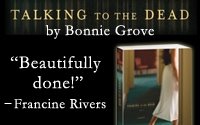I posted this over at Novel Matters a few weeks ago. It didn't get the comments I thought it would, but as I revisited this post, I liked it as much as when I first wrote it. So, I'm giving it a second breath on my own blog. I hope you enjoy it, and, as so often happens here, I hope we can have a wonderful conversation about the questions I urge us all to ask about our writing.
How can you take what you know, and spin it into a story that will speak to the world? I'm thinking it begins by asking simple, yet complex questions.
I checked the back flap author info, and sure enough, Colum McCann lives in New York City with his family (born in Dublin, a stay in Japan, now in The Apple). McCann knows New York. He lives there - he's familiar with it's nooks, shops those out of the way places. Maybe rides the subways under the city, the elevators above it. It's a classic example of an author writing what he knows.
But that's not the question, here. The question is what makes Let the Great World Spin one of the 'greatest-ever' novels about New York? I can't speak for McCann, but I've made some observations while reading this novel about how McCann took what he knew and put a spin on it. Here are my imaginings of the steps McCann took:
He looked at his city (traveled through it, walking, riding, talking to people) and began to piece together an image of New York City as a whole. New York is a city divided - boroughs aligned with fear and poverty, Harlem, Queens, The Bronx, and addresses that define people more precisely than any adjective could. Park Avenue. Upper East Side. The Village. He knew all this going into the novel, of course. But he took the next step - he did what all great writers must do, he looked closer and asked himself, "What does this mean?"
It means, in part, that New York is a microcosm for American society, a sort of petri dish in which an entire nation can be observed in miniature. And in discovering this meaning, he would have asked himself the question, "How do we continue to live with each other in the face of these polemic divisions?" He would have examined the divisions - the choices and circumstances that leads some people to The Stroll, others to Park Avenue, and still others to the wild party scene, gulping the landscape like some many glasses of champagne, and, unbelievably, to walking on tightrope between the World Trade towers.
After this process, he would have turned his attention to the hinge question, the one on which the whole shooting match either works, or falls apart. He asks, "How does this city connect us to one another?"
And this is the story he tells - a city that, on the surface divides according to income, skin color, education, opportunity. A city with invisible walls that hem people in, and keep others out. But then, he takes up at the threads of the last question "How does this city connect us to one another", and he pulls. He brings the answers to the foreground where we can see them for the first time. It feels like a magic trick - TA-DA! and I can see what was only moments before invisible. I am made aware that the beating heart tucked away in a high-rise in the Bronx, gazing down at the hookers below, is connected to my own beating heart. He opens our eyes to the fact that the stranger we pass is, in reality, nearly related to us. That his existence matters to our own, and that ours matters to him.
And that is what makes it one of the greatest novels about New York. Because, in the end, its a novel about all of us.
This week we've been talking about writing what you know. As you do, ask yourself these simple, difficult questions:
What does this mean?
How does this reality affect us?
How does this reality connect us?
These questions will lead you to other questions - ones tied specifically to your subject matter, your story.
How have you taken what you know, and examined it more closely? Let your assumptions slide, and searched for the invisible threads?
Have you read a novel that has done this?
Lets chat.
I bid you good writing.









1 comment:
I think maybe the problem with writing what we know is that most of us think we know it... we've walked the streets of our hometown (or lived through sonething or studied something) so much that we forget to ask these deeper questions. And so because we are somewhat bored with the topic and not asking questions, neither is our reader.
Interesting analysis of McCann's novel - now I want to read it!
Post a Comment